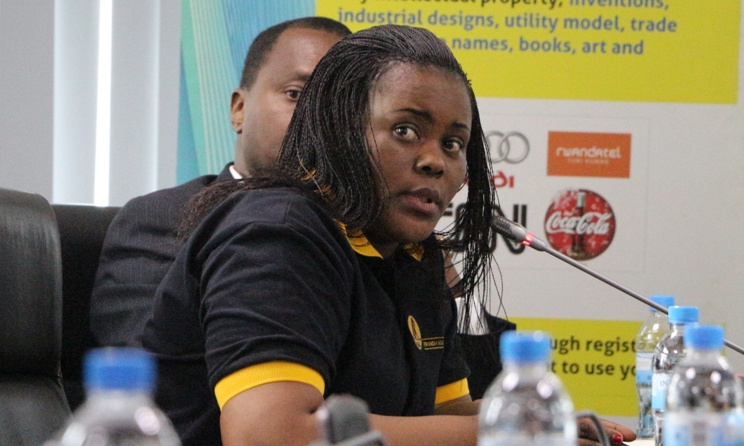Rwanda copyright law gets mixed reactions
The Rwandese government last week announced a move to enforce the 2009 Intellectual Property Law.
 RSAU CEO Nadine Bwiza.
RSAU CEO Nadine Bwiza.
This is a historic moment for Rwandan artists because it means they will be paid royalties for the use of their works for the first time, aside from performance and sales revenue.
“We began the collection of royalties this month from business establishments, which we will in turn distribute to artists most probably twice every year,” Rwandan Society of Authors (RSAU) CEO said Nadine Bwiza said.
The Rwanda Development Board (RDB) announced in April that business establishments playing local music would be required to pay royalties to artists via the RSAU, which is a collective management organisation.
The RDB said business establishments that failed to pay artist royalties would face legal action. The infringement of copyright constitutes unauthorised reproduction, distribution and selling of copyright protected works.
The division manager in charge of intellectual property at RDB, Blaise Ruhima, said the board was in the process of addressing the concerns raised by artists and business owners. "This is implementation of a law, therefore we have to find ways of settling all misunderstandings,” he said. “In the enforcement, we have several stakeholders including the national police.”
Improvement process of the 2009 law
The RDB developed the royalty collection process which was to be implemented from July. Copyright Society of Botswana (COSOTA) CEO Thato Mokobi provided consultancy services and recommended that a collective management organisation, the RSAU, be formed and given the mandate to collect royalties. He said the model had been a success in his country and was adopted by other countries like Kenya.
The RSAU committee was formed and tasked with the collection and redistribution of royalties as well as the registration of artists as its members. “In partnership with the RDB we have set tariffs determining how much businesses will be required to pay,” Bwiza said in April. “The charges are the lowest in the region and will be easily accommodated by the business community. The charges are based on the type of business and the revenue generated.”
Hotels and restaurants with between zero and two stars will be required to pay USD 1 803 annually whereas those above two stars will be required to pay a higher annual fee. On the other hand, radio stations will be required to pay a percentage of their gross revenue, which will be determined after they have presented records of their playlists of local content to the RSAU.
Reactions by business owners and musicians
The development has not been received positively in Rwanda, with a major concern being that previous attempts to instate a copyright law had failed.
Musician and owner of Contact FM Albert Rudatsimburwa said the move to implement the directive was wrong since the stakeholders in the industry were not represented when discussions took place.
Speaking to local media, Rudatsimburwa said the RDB and RSAU should have involved key stakeholders since the two had little understanding of the industry. “They should not make such a decision without consulting all,” he said. “We are not against the association but rather against the royalty collection process. The decision was not practical since we do not directly make any revenue from playing local music. The law may force us to cease playing local music.”
Kina Music CEO Clement Ishimwe called for the fine-tuning of some aspects of the directive. He urged RSAU to acquire software that would establish how often artists’ content had been played on the airwaves in order to determine the amount they should get paid.
He said that without such software there would be unequal and unfair distribution of royalties, as it would not be possible to determine the exact amount owed to artists.
Since its inception, the RSAU has managed to register 460 musicians, which could point to proof that artists in Rwanda are still sceptical about the implementation of the new law. Many popular artists are hesitant to sign up with the society for fear of hurting their rapport with business owners in the industry.
However, renowned actress and performer Carole Karemera said resistance to the law was due to a lack of proper understanding of copyright principles. “As someone who has her creations registered in a number of countries across the world and receives revenue, local artists ought to view the initiative as an opportunity for growth. The government can deal with this through awareness campaigns,” she said.
The Minister for Trade and Industry, Francois Kanimba, has admitted that the initiative was facing some challenges, largely due to low levels of public awareness. "We are at crossroads in terms of developing the local creative industry,” he said. “We have seen things developing without a clear understanding or framework [legal and institutional]. Even public awareness campaigns have not taken place so far.”
Despite all the concerns, Kanimba said the law would deal with business owners who were attempting to frustrate the process by defaulting on payments.






























Comments
Log in or register to post comments